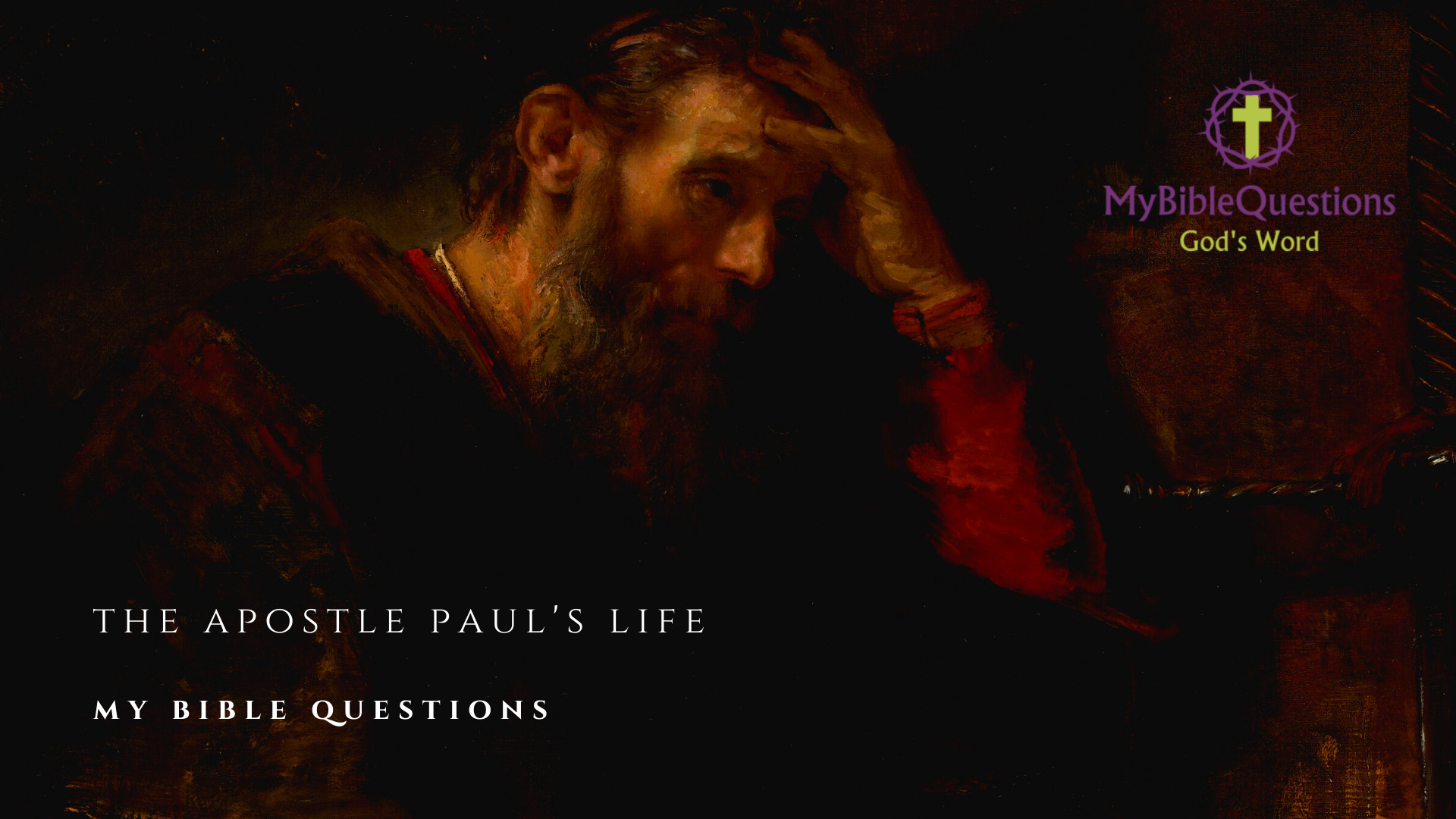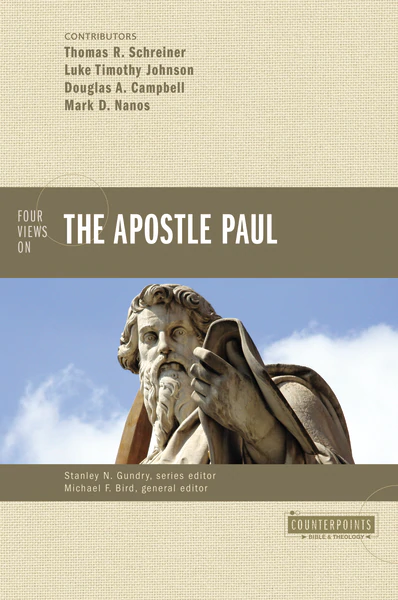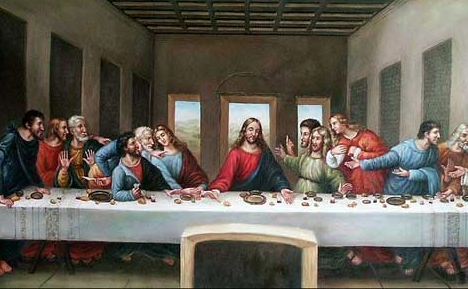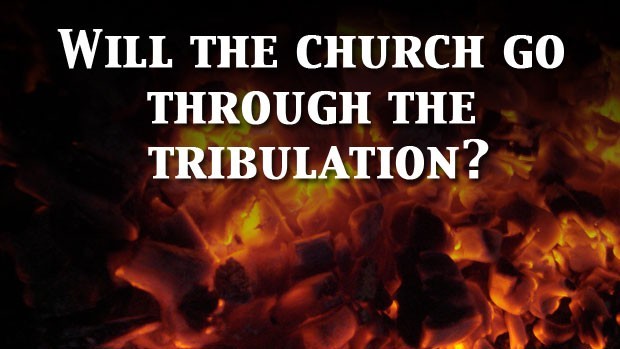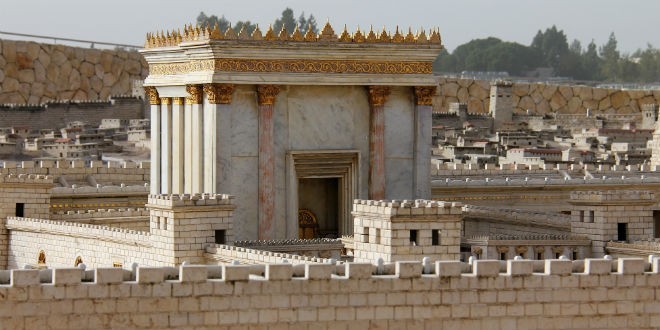
Can A Christian Lose Their Salvation?
Have you ever heard or run into some christians that believe that they can never lose their salvation no matter what they do or do not do because they simply do not understand what the word of God teaches.
Eternal security once saved always saved grace alone believers claim that (1 Corinthians 3:15) is absolute proof that a we as christians can never lose our salvation but may lose our rewards.
(1 Corinthians 3:15).
“IF any man’s work shall be burned, he shall suffer loss: but he himself shall be saved; yet so as by fire.”
I believe that any verse when view alone and apart from the rest of God’s word may seem to be saving or may be made to say something that it is not really saying when it is correctly interpreted in the light of the whole word of our Almighty God.
Now those who teach eternal security interpret this verse to mean that a we can never lose our salvation and they teach that no works are required to keep or maintain our salvation in order to receive eternal life in the world to come. They say the only thing we can ever lose the rewards.
Let’s take a closer look at this verse with the emphasis on the word Work.
(1 Corinthians 3:15)
“IF any anyone’s work is burned up, he will suffer loss: though he himself will be saved; but only through fire.”
What Work is the Bible speaking of?
I thought there were no works. But clearly there is someone’s work that may or may not be burned because there is a conditional, If any man’s work would be burned then he shall suffer loss of reward but he himself shall be saved yet so by fire.
Well, common sense should tell anyone with eyes to see and ears to hear that all evil sinful works will without fail be burned so there is no if whether or not that the works of iniquity will be burned. So clearly this verse is not speaking of good works versus evil sinful works because, who in their right mind would think God would reward evil sinful works but, if those evil sinful works are burned then they lose their reward. Of course evil sinful works will burn because that is what Jesus came to destroy. Jesus came to destroy the works of the devil.
And it is also clear that God is not going to burn our good works. So the work here with the condition if it be burned we shall suffer loss of reward is speaking of those we bring to saving faith in Jesus. And if one of them should lose their salvation and be burned in the lake of fire we will suffer the loss of reward for that Christian who did not endure unto the end.
Why do you think Paul was plagued with care for the churches daily and always checked to see how they were doing? Why was Paul worried about laboring in vain? It was because Paul and the other apostles were concerned that some Christians would be deceived and depart from God.
Also I want you to notice that Paul adds the conditional clause “Yet so as by FIRE” in order to be saved. Now fire in the Bible speak of trials and testing, the trying of our faith to see if we will be found faithful. So this teaches us that our own works must be good works or we will not be saved.
Again, the truth of the matter is that the work here in this passage of Scripture does not refer to good works of righteousness versus evil sinful works but rather our work of bringing people to saving faith in Jesus. And if they remain faithful unto the end then we shall receive a reward. BUT if one or more of those people we bring or help bring to saving faith in Jesus are found unfaithful on the day of judgment and cast into the lake of fire to be burned then we shall lose any reward that we would have received if they were to have remained faithful unto the end to receive their eternal life in the world to come.
God understands that we cannot make people believe the true gospel of Jesus Christ that we must endure unto the end to be saved but that does not mean we should not try our best show them the true gospel of salvation. So to those of you who are reading this study in God’s word who have made up your minds that the once saved always saved doctrine is true please understand that I am not trying to make you believe what I myself believe but rather I am simply showing you why I do not believe that the OSAS eternal security doctrines are sound Biblical teaching.
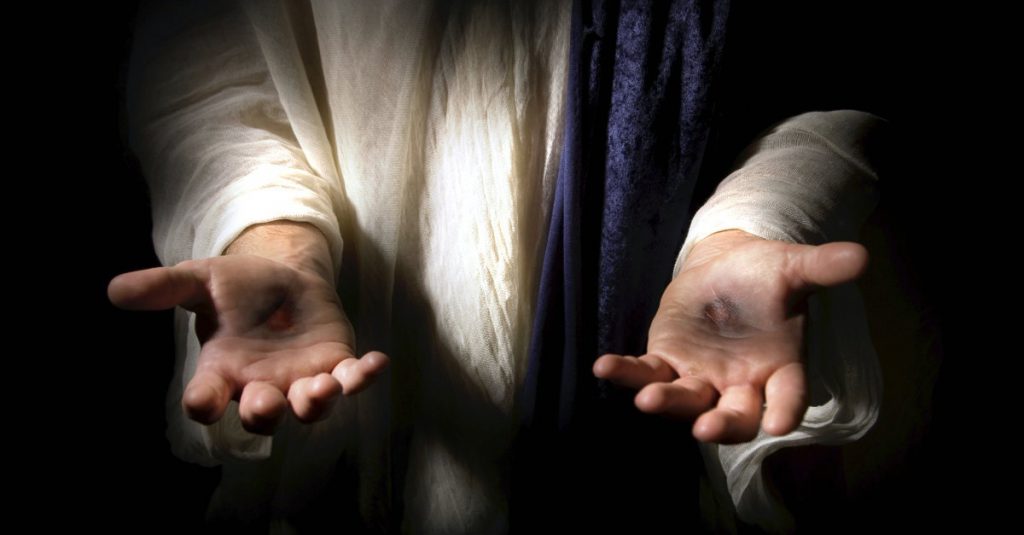
Let us now read the whole context to see the true sound biblical meaning of verse 15 concerning what the work truly is according to the context.
As we read 1 Corinthians 3:1-18 where you will see that our work’s are those people we bring to saving faith IN Jesus.
(1 Corinthians 3:1-18)
“And I, brethren, could not speak unto you as unto spiritual, but as unto carnal, even as unto babes in Christ.
2. I have fed you with milk, and not with meat: for hitherto you were not able to bear it, neither yet now are you able.
3. For you are yet carnal: for whereas there is among you envying, and strife, and divisions, are you not carnal, and walk as men?
4. For while one says, I am of Paul; and another, I am of Apollos; are you not carnal?
5. Who then is Paul, and who is Apollos, but ministers by whom yo u believed, even as the Lord gave to every man?
6. I have planted, Apollos watered; but God gave the increase. (So the subject under discussion here is preaching the gospel of Jesus Christ whereby people are saved. Some Christians sows seeds of God’s word while other Christians water those seeds and then it is God who makes the seed of his word grow)
7. So then neither is he that plants anything, neither he that waters; but God that gives the increase. (also under discussion is the carnal mindset of Christians boasting that they are of Paul while others boast that they are of Apollos. Today Christians boast that they are Baptist while others boast that they are Calvinist. Basically, Paul is saying that all the church denominations are not of God.)
8. Now he that plants and he that waters are ONE( meaning that we SHARE in the reward IF our WORK remains faithful unto the end and is NOT burned in the lake of fire): and every man shall receive his own reward according to his own labour. (Paul is still talking about preaching the gospel which is sowing and watering God’s word. Paul is saying now if one Christians plants a seed of God’s word and another Christian comes along and waters that seed of God’s word then they both shall share or receive a reward for that person coming to Jesus to be saved. One christian may receive a little more reward depending on how much work they put into bring the person to saving faith compared to the other christian efforts of witnessing to that person who accepts Jesus as their savior but for sure both shall receive a reward IF that work remains faithful unto the end.)
9. For we are laborers together with God (or we are workers together with God building his church): you are God’s husbandry, you are God’s building.
10. According to the grace of God which is given unto me, as a wise master builder, I have laid the foundation, and another builds thereon. But let every man take heed HOW he BUILDS thereupon. (because IF your WORK does NOT remain faithful you will lose your reward. And you MAY be held accountable for their soul being lost. Please see Ezekiel 3:18-21. Building the kingdom of God is WORK. Bring people to Jesus is the WORK of every Christians ministry. We may not all be called to a full time ministry but we are all called to be a LIGHT unto the world. YOU may be the only Bible some people ever read. So do they SEE Jesus is you?)
11. For other foundation can no man lay than that is laid, which is Jesus Christ.
12 Now if any man BUILD upon this foundation gold, silver, precious stones, wood, hay, stubble; (In other words, there are basically TWO WAYS a Christian can BUILD the kingdom of God. We can BUILD strong well rooted and grounded Christians who will endure unto the end and never depart from God and these Christians are likened to gold silver and precious stones which do NOT BURN in the fire but are refined by the fire. OR we can NOT TAKE HEED as to HOW we BUILD and produce Christians that will live in sin because they are not rooted and grounded in the TRUE gospel of Jesus Christ and these Christians are likened to be or become wood, stubble, or hay which BURN in the lake of fire on the day of judgment.)
13. Every man’s WORK shall be made manifest: (you shall know a tree by its FRUIT) for the day shall declare it, because it shall be revealed by fire; (or TESTING and trying of their faith) and the fire shall try every man’s WORK of what sort it is. (Or every Christian who is some other Christian’s WORK will be TRIED or tested to see what fruit they will bear. Please see the parable of the sower sowing the seed of God’s word how some Christians only endure for a short time and ONLY the GOOD SOIL produced Christians who bear GOOD FRUIT. See Matthew 3:3-23.)
14. If any man’s WORK abide (or REMAIN and endure unto the END) which he has BUILT thereupon (the foundation of Jesus Christ adding to God’s BUILDING), he shall receive a reward. (BECAUSE those Christians who are the WORK of other Christians will REMAIN faithful unto the end to be saved or to receive eternal life in the world to come and the second death has no power over them to be burned in the lake of fire, BUT)
15. IF any man’s WORK shall be burned (Or if any person we bring to Jesus falls away from the faith and they are destroyed by being burned in the lake of fire), he shall suffer loss (or he shall suffer the loss of the reward he would have received IF that person would have endured unto the end to receive eternal life in the world to come): but he himself shall be saved; yet so as by fire. (meaning that EVERY Christian’s faith is TRIED or TESTED to see IF they themselves remain faithful unto the end to receive eternal life in the world to come.)
16. Know you not that you are the temple of God, and that the Spirit of God dwells in you?
17. IF ANY MAN defiles the temple of God, him shall God DESTROY; for the temple of God is holy, which temple YOU are.
18. Let no man DECEIVE HIMSELF. If any man among you seems to be wise in this world, let him become a fool, that he may be wise.”
Now if so be that no true born-again Christian can ever lose their salvation then why does the Apostle Paul warns us not to defile the temple of God which temple we are and then tell us to not deceived ourselves? Any Christians who thinks they are above being deceived are deceived already. Only true born-again Christians can receive the indwelling of the Holy Spirit to be the temple of God so it is very clear that the Apostle Paul is speaking to true born-again Christians warning us that if any true born-again christian defiles himself then God will destroy him on the day of judgment.
The truth of the matter is that 1 Corinthians 3:15 does not prove that a Christian can never lose their salvation and they can only lose their reward. Any one truly seeking the truth of the whole word of God can clearly see that the work in verse 15 is the same work throughout the whole context which is the “who” or the “person” that is built on the foundation of Jesus Christ by another christian or christians work of the ministry of reconciliation who will receive a reward for adding them to God’s building the church if they remain faithful unto the end and are not burned on the day of judgment in the lake of fire.
Our work is the people whom we bring to saving faith in Jesus Christ. And if they endure unto the end we shall receive a reward for our work of helping to reconciling them to God through the gospel we share with them. But if the lose their salvation by not enduring unto the end to be saved then we shall suffer the loss of the reward we would have received if they were to be found that good and faithful servant on the day of judgment.
In other words, we do not lose our salvation if the people we bring to saving faith become deceived and fall away from the faith and they are burned in the lake of fire on the day of judgment but we will lose our reward which we would have received IF the would have remained faithful unto the end to receive their eternal life in the world to come.
Now, if it is true that no true born-again Christian can every lose their salvation then Paul would not have use the if our work burn we shall suffer loss. Can you not see my dear brothers and sisters in our Lord Jesus Christ, that if Paul is teaching us that no Christians can ever lose their salvation then not one single person we help BUILD on the foundation of Jesus Christ to become a part of God’s building will not ever be able to be burned. So it makes no sense whatsoever for Paul to warn us that if our work would be burned then we shall suffer the loss of the reward we would have received if our work would remain and not be burned.

The Bible warns us that there will be some in the last days who will not endure sound doctrine and will heap to themselves teachers that will tickle their ear with words that they like to hear.
(2 Timothy 4:1-8) reads:
“I charge you therefore before God, and the Lord Jesus Christ, who shall judge the quick and the dead at his appearing and his kingdom; (the word CHARGE here mean hortatively, to earnestly exhort, to implore and to strongly urge you before God to know and understand the both the living and the dead will be JUDGED AT his appearing. Now we also know that ONLY the dead IN Jesus Christ will be judged AT his appearing according to Revelation 20:4-6. So then the LIVING here is also speaking of those of us IN Jesus Christ. So we best know and understand what it MEANS to be IN Jesus Christ and having the promise of eternal life ABIDING IN us AT his appearing)
2. Preach the word; be instant in season, out of season; reprove, rebuke, exhort with all longsuffering and doctrine. (why the need to reprove and rebuke if so be no true born-again Christian can ever lose their salvation?)
3. For (or BECAUSE) the time will come when they will NOT ENDURE SOUND doctrine; but after their own lusts shall they heap to themselves teachers, having itching ears;
4. And they shall TURN AWAY their ears from the TRUTH, and shall be turned unto FABLES.
5. But WATCH YOU in all things, endure afflictions, do the work of an evangelist, make full proof of your ministry.
6. For I am now ready to be offered, and the time of my departure is at hand.
7. I have FOUGHT a GOOD FIGHT, I have finished my course, I have KEPT the faith:
8. HENCEFORTH (or for this very reason of my fighting a good FIGHT of faith to endure unto the END to KEEP my FAITH) there is laid up for me a crown of righteousness,(speaking of our crown of eternal life for be found that GOD and FAITHFUL servant unto the END) which the Lord, the righteous judge, shall give me at that day: and not to me only, but unto ALL them also that love his appearing.”
Well, clearly that time has come where some Christians are not endure sound biblical doctrine that they must endure unto the end in order to receive eternal life in the world to come.
We read in (1 John 3:1-15):
“Behold, what manner of love the Father has bestowed upon us, that we should be called the sons of God: therefore the world knows us not, because it knew him not. (the world does not know or understand Christians who return GOOD when evil is done to them)
2. Beloved, now are we the sons of God, and it does not yet appear what we shall be: but we know that, when he shall appear, we shall be like him; for we shall see him as he is. (one of the joys set before us is to know and understand that we will receive eternal life like Jesus to rule and reign with him in the world to come)
1Jn 3:3 And EVERY man that has this HOPE in him (the HOPE of eternal life) PURIFIES himself, EVEN AS HE is PURE. (the only way for us to be as PURE as Jesus is to confess our sins and believe in God’s faithfulness to his word that he will forgive us of all our sins and cleanse us from all unrighteousness each and every time we sin. And in those times we do not sin his blood continual keeps us cleansed. But IF we sin then our garments are stained with sin so we must CONFESS our sins and ask God to forgive us so that we will be PURE even as Jesus is PURE and not be ashamed at his coming)
4. Whosoever commits sin transgresses also the law: (NOT the law contained in ORDINANCES which we are NOT UNDER but rather the MORAL law of God) for sin is the transgression of the law. (breaking any MORAL law is SIN so we need to repent quickly and CONFESS our sin to keep ourselves PURE even as Jesus is PURE)
5. And you know that he was manifested to take away our sins; and IN him is no sin. (so we are IN Jesus HAVING the promise of eternal life ABIDING IN us so long as we are KEEPING ourselves PURE even as Jesus is PURE)
6. Whosoever abides in him sins not: whosoever sins has not seen him, neither known him. (This teaches us that those who claim they are born-again Christians but they continue to LIVE in sin having NO change in their desire to live in sin then they do NOT truly know Jesus.)
7. Little children, let NO man DECEIVE you: he that does righteousness is righteous, even as he is righteous. (John is repeating what he said at the beginning of his letter in 1 John 1:6,7 where if we walk in the light even as Jesus then his blood CONTINUALLY keeps us CLEANSED from all our sin so that we remain perfect and pure even as Jesus is perfect and pure.)
8. He that commits sin is of the devil; for the devil sins from the beginning. For this purpose the Son of God was manifested, that he might destroy the works of the devil. (Paul teaches us in Romans that we are FREED from sin and that sin shall NOT have any more dominion over us which mean that we no longer are in bondage to be servant of sin. We do NOT have to OBEY the lust of the flesh any longer because GREATER is he who dwells IN us than he who is in the world speaking of the devil who tempts us to sin.)
9. Whosoever is born of God does NOT commit sin; for his seed remains in him: and he cannot sin, because he is born of God. (God’s word is his seed planted in us. And Jesus said that IF we CONTINUE or remain in his word then we will know the TRUTH and the TRUTH will make us FREE. And if you read the CONTEXT you will see that Jesus is speaking of being free from SIN. See John 8:30-51.)
10. In this the children of God are manifest, and the children of the devil:(In other words, a tree is KNOWN by what FRUIT it bears) whosoever does NOT righteousness is NOT of God, neither he that loves not his brother.
11. For THIS IS the message that you heard from the beginning, that we should love one another.
12. Not as Cain, who was of that wicked one, and slew his brother. And wherefore slew he him? Because his own works were evil, and his brother’s righteous.
13. Marvel not, my brethren, if the world hate you.
14. We know that we have passed from death unto life, because we love the brethren. He that loves NOT his brother abides in death.
15. Whosoever hates his brother is a murderer: and you KNOW that NO murderer has eternal life ABIDING IN him.”
Plain and simple, IF we do not walk in love and we harbor hatred toward one another refusing to repent then we are likened to being a murder which we know cannot inherit eternal life in the world to come.
So therefore, if we say we love Jesus then we will obey his teaching which he taught to his apostles and disciples in the New Testament.
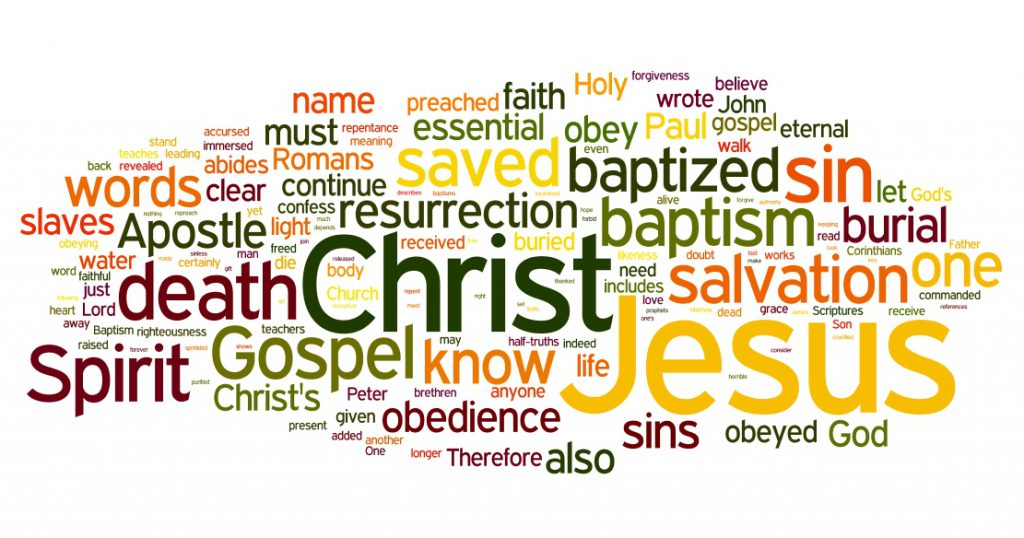
Now some Christians have gone to the extreme on one side of the scale while some christians have gone to the extreme on the opposite end of the scale. What I mean by this is that some christians have been deceived to try and keep both the OLD Covenant and the New Covenant in order to be pleasing to God and receive eternal life in the world to come. While some other Christians have been deceived to not keep any of the teachings of Jesus to endure unto the end to be saved.
But the truth of the whole word of God is right down the middle between these two extreme teachings of the seventh day of the week sabbath keeping christians and the once saved always saved grace alone you can never lose your salvation no matter what you do or do not do Christians.
The simple gospel message is to be led of the Holy Spirit and while we are obeying the leading of the Holy Spirit there is no condemnation is us. But as soon as we begin walking after the flesh the Holy Spirit condemns us of SIN. And we have that condemnation of sin until we confess that sin and ask God to forgive us of that sin. And when we obey the leading of the Holy Spirit to confess our sins if and when we sin then God forgives us and cleanses us from all unrighteousness to be made perfect once again in the eyes of God. How can the gospel of Jesus Christ be any more simple than obeying the leading of the Holy Spirit dwelling in you to lead and guide you into all truth?
Now some Christians who have been taught that it is wrong to break the weekly Sabbath day do indeed feel guilt if they do not keep the seventh day of the week Holy as they have been taught even though what they have been taught is not the truth of the whole word of Almighty God. What I am saying is that simply having condemnation does not prove that the condemnation if from the Holy Spirit.
And hear is how I hear this to be true. Every seventh day of the week saturday Sabbath keeping christian will argue that the Bible itself does not command us to keep sunday as a day of rest and I agree. But here is the thing. When I was raised in the Roman Catholic church I was taught that it was a mortal SIN if I missed going to mass on Sunday. And when I became a true born-again christian in the Assemblies of God denomination that teachings stayed with me and I felt guilt if I missed going to church on Sunday. But after I saw from God’s word that there is no such commandment to keep any day of the week that condemnation of missing church service on sunday has left me and has never returned.
Now on the other end of the scale those christians who are taught once saved always saved grace alone and no works will reason away any condemnation of sin by teaching that only Jesus can live without sin. And over time they quench the convicting work of the Holy Spirit to no longer confess their sins.
So then, on the one end of the scale there are some christians who are not fully trusting in the work of Jesus who go about to try and earn their salvation by works that are no longer required under the New Covenant. And one they other end of the scale there are some christians who do not truly believe the teachings of Jesus to obey his teachings to do the works of righteousness that are required to obtain eternal life in the world to come.
Paul warns both groups of christians on both ends of the scale that they have departed from the truth of the gospel of Jesus Christ saving that the Judaizing Christians have fallen from grace and the Christians living in sin have departed from God. So unless both groups of christians repent and obey the truth of the gospel then they are in danger of losing their reward of the gift of eternal life in the world to come.
Now both groups of christians seem to love defending what they have been taught by their church denomination. And the osas group of christians would say that the sabbath keeping christians are making a lie or teaching a false doctrine. And the sabbath keeping christians would say that the osas christians are making a lie or teaching a false doctrine. And those of us who are down the middle will say that both the sabbath keeping christians and the once saved always saved christians are making a lie or teaching false doctrines.
And here is what Jesus says about lying.
(Revelation 22:11-15):
“He that is unjust, let him be unjust still: and he which is filthy, let him be filthy still: and he that is righteous, let him be righteous still: and he that is holy, let him be holy still. (So then AT the very moment of the beginning of the sounding of the LAST trumpet which is when our CHANGE for mortal to immortality takes place in a MOMENT and in a twinkling of an eye there will be NO time for ANYONE to REPENT of living in SIN or turn away and commit any sin. And that is WHY we must always be READY for the coming of Jesus and the rapture of the church. For IF we be found a worker of iniquity we shall NOT inherit eternal life when Jesus returns.)
12. And, behold, I come quickly; and my REWARD (or payment that is promised) is with me, to give every man according as his WORK shall BE. (AT the MOMENT I return which is WHY I am WARNING you beforehand that those living in unrighteous when I return will be rewarded according to their WORK of iniquity)
13. I am Alpha and Omega, the beginning and the end, the first and the last.
14. Blessed are THEY that DO his commandments, that (or so that or in order that) THEY (speaking of ONLY those of us who are IN Jesus Christ who are OBEYING the leading of the Holy Spirit to KEEP the commandments written in the NEW Testament under the NEW Covenant) may have RIGHT to the tree of life, and may ENTER in through the gates into the city.
15. For (or because) without are dogs, and sorcerers, and whoremongers, and murderers, and idolaters, and whosoever loves and makes a lie.”
Over and over in the letters to the church, Jesus warns us that if we do not overcome then we will not be granted eternal life in the world to come.
So I implore my readers to do your own word search on how and when we receive eternal life in the world to come. And once you see directly from God’s word that our receiving the promise of eternal life is conditional then you will see that being saved is a process the begins our faith.
Jesus is both the author and the finisher of our faith and we can be assured that he who began this good work in us will also complete it which means that HE will never leave nor forsake us but it does not mean that we can never be deceived by false teaching and forsake him. God bless us richly as you continue in the truth of the whole word of our Lord and Saviour.
God Bless,
MyBibleQuestions







